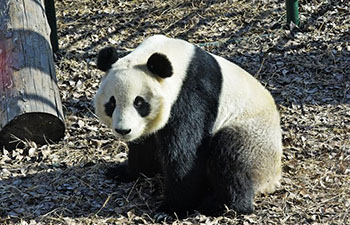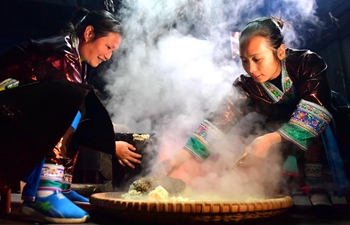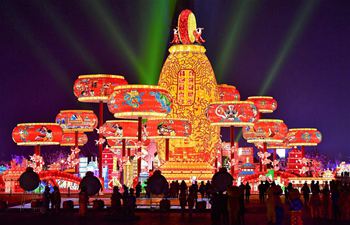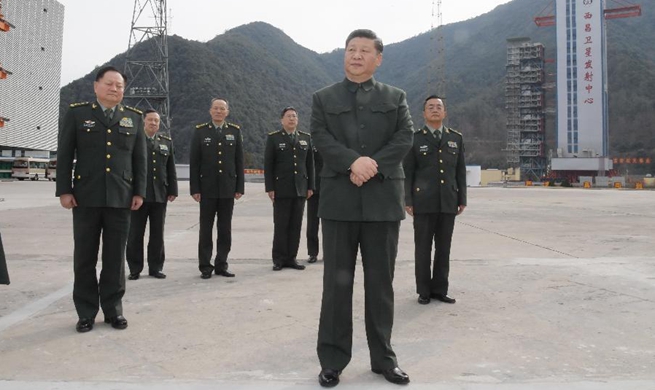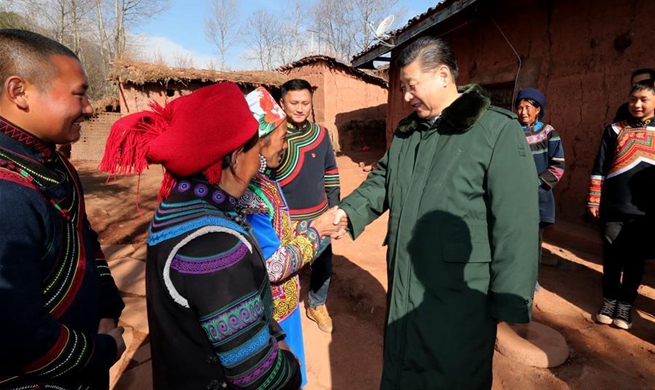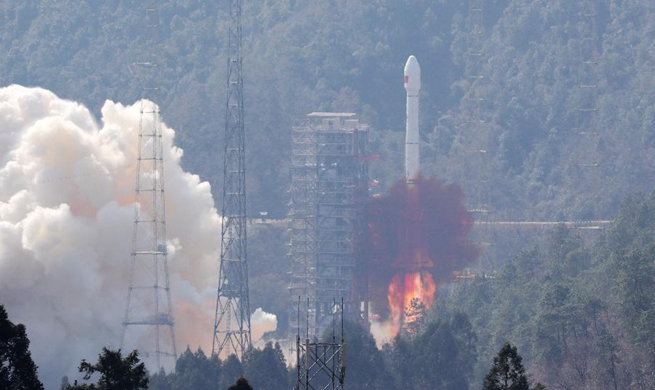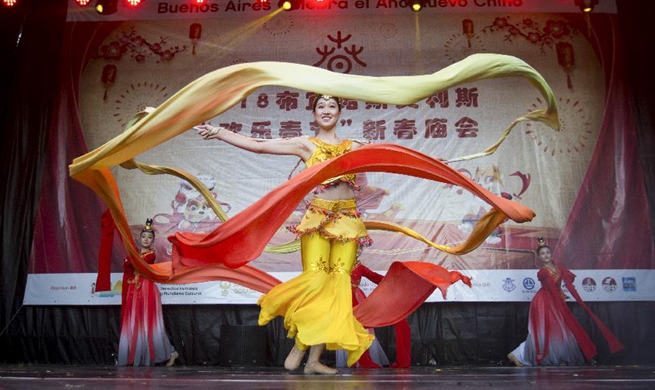ADDIS ABABA, Feb. 12 (Xinhua) -- During the 30th summit of the African Union (AU) heads of states, African leaders have expressed their firm commitment to breaking off the chains of corruption to eradicate the scourge in all its forms.
Under the umbrella of the AU Department of Political Affairs, the pan-African bloc adopted "Winning the Fight against Corruption: A Sustainable Path to Africa's Transformation" as the theme of the summit and for the whole 2018.
On Monday, the AU released a statement and a logo of the 2018 anti-corruption campaign.
The logo derives its color scheme from the AU symbols as prescribed by the Constitutive Act of the Union, noted the statement.
This includes the emblem of the AU: the palm leaves shooting up on either side of the outer circle stand for peace; the gold circle symbolizes Africa's wealth and bright future; the green circle stands for African hopes and aspirations; the plain map of Africa without boundaries in the inner circle signifies African unity and the small interlocking red rings at base of the emblem stand for African solidarity and the bloodshed for liberation of Africa.
The entire motif of the logo on the theme of the year 2018, depicts Africa's struggle with acts of corruption on the continent, from the shackles of slavery; colonialism; apartheid and the modern concept of "State Capture," while the hand cuffs-breaking signifies the resolve to break free from the historical and current burden of corruption in all its forms, said the statement.
In his speech at the 32nd Session of the AU Executive Council under the framework of the 30th AU summit, Moussa Faki Mahamat, chairperson of the AU Commission, noted that the theme of the year 2018 is in perfect correlation with investing in youth by harnessing the demographic dividend, the theme of the previous year.
According to the pan-African bloc, the figures put forward by many credible reports of experts show that the scourge of corruption has reached alarming proportions.
The reports state that the resources diverted by corruption from Africa could, if invested in development, replace the use of external assistance, which then only becomes a mere supplement to the resources and potential of the continent.
In relation to the problem, the report of the panel led by former President Thabo Mbeki of South Africa shows that corruption, coupled with illicit financial flows, deprives Africa of about 50 billion U.S. dollars a year.
Emphasizing on the magnitude of the problem, the chairperson of the AU Commission has called on all African nations to be concerned in one way or another, at more or less varying degrees.
"Like terrorism, the fight here should be global and can only be won by our collective action," Faki said.
According to the chairperson of the AU Advisory Board on Corruption, Begoto Miarom, one of the first steps in combating corruption is having strong laws and even stronger institutions.
The adoption of the AU Convention on Preventing and Combating Corruption (AUCPCC) in 2003 and its rapid entry into force in 2006 gave hope to many in Africa that governments are determined to fight corruption.
To date, 49 of the 55 AU member states have signed the AUCPCC, and 38 of them have gone on to ratify the convention and become state parties to it, said Begoto.
He has also expressed satisfaction that many of the state parties have gone on to domesticate the convention through the enactment of national laws as well as establishment of national anti-corruption agencies.
"While these are indeed commendable efforts that must be lauded, some gaps still exist as 17 countries are yet to ratify the convention," he said. "The universal ratification by all member states will symbolize Africa's determination to fight corruption."
Begoto reiterated the need to deepen the resolve, focus and expertise for addressing the many facets of corruption facing Africa.
"As part of the program of activities, we will seek to involve the broadest range of actors including national anti-corruption agencies, central banks, national audit and investigative agencies, civil society organizations, the youth and women," he said.




